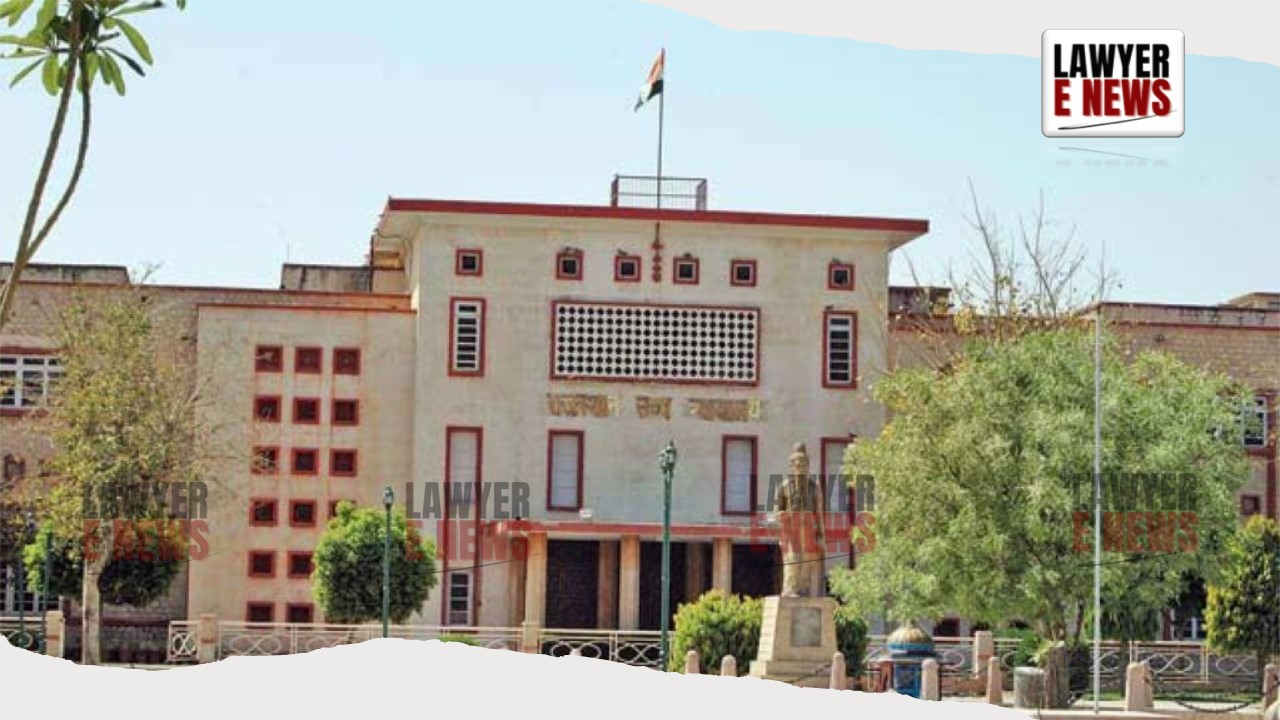-
by Admin
15 February 2026 5:35 AM



High Court of Judicature for Rajasthan at Jodhpur, in the case of Shriram General Insurance Co. Ltd. v. Jethmal Singh & Ors., addressed critical issues related to compensation claims under the Motor Vehicles Act, 1988, concerning the status of a deceased laborer traveling in a commercial vehicle and the entitlement to consortium for siblings. The Court upheld that the deceased, who was hired for loading and unloading goods, retained the status of an authorized representative of the vehicle owner even though there were no goods in the vehicle at the time of the accident. Additionally, the Court enhanced the compensation, awarding consortium to the deceased’s brother.
The case arose from a fatal accident on June 21, 2017, when Dharampal Singh, a laborer hired to unload goods, was returning from Khara to Barmer in a Bolero Camper vehicle. While traveling back, the vehicle met with an accident, leading to Dharampal Singh’s death. His dependents filed for compensation, initially awarded ₹8,43,760/- by the Motor Accidents Claims Tribunal (MACT), Barmer. The insurance company, Shriram General Insurance Co. Ltd., appealed against the Tribunal's decision, contesting that the deceased was a gratuitous passenger, not covered under the insurance policy. Additionally, the claimants cross-filed for enhancement of compensation, particularly for the non-pecuniary loss (consortium) suffered by the deceased's brother.
The insurance company argued that the deceased, Dharampal Singh, was a gratuitous passenger because there were no goods in the vehicle at the time of the accident, thus violating the insurance policy.
The Tribunal had not awarded compensation towards consortium for the deceased’s brother, which was challenged by the claimants, citing precedents that extended such claims to siblings.
Deceased as Authorized Representative Despite Absence of Goods:
The Court examined the provisions under Section 147 of the Motor Vehicles Act, 1988, which defines the liabilities covered under insurance policies for goods vehicles. It noted that although no goods were present in the vehicle at the time of the accident, the deceased was traveling as part of his duties, having unloaded goods at a prior stop. The Court ruled:
"It is only reasonable for a laborer hired for loading and unloading to return in the vehicle after completing the task, thus maintaining his status as an authorized representative of the owner of the goods."
The Court rejected the insurance company's argument and held that there was no violation of the insurance policy, as the deceased was authorized to travel in the vehicle, even if no goods were being transported.
The Court also addressed the issue of awarding compensation towards consortium for the deceased's brother. Relying on the Supreme Court rulings in Magma General Insurance Co. Ltd. v. Nanu Ram and National Insurance Co. Ltd. v. Pranay Sethi, the Court ruled:
"Consortium is not limited to spouses, parents, or children. Siblings who suffer non-pecuniary loss of love, care, and companionship are also entitled to compensation."
Accordingly, the Court awarded ₹1,44,000/- towards consortium to the deceased’s brother.
The insurance company was directed to pay the enhanced compensation with 7% interest from the date of the claim filing, September 25, 2017.
The Rajasthan High Court, while dismissing the appeal by the insurance company and partly allowing the claimants' cross-objection, reinforced the rights of workers involved in goods transportation and expanded the scope of consortium claims to include siblings. This judgment not only clarifies the position of laborers traveling in commercial vehicles but also recognizes the broader family impact of non-pecuniary losses in fatal motor accidents.
Date of Decision: October 1, 2024
